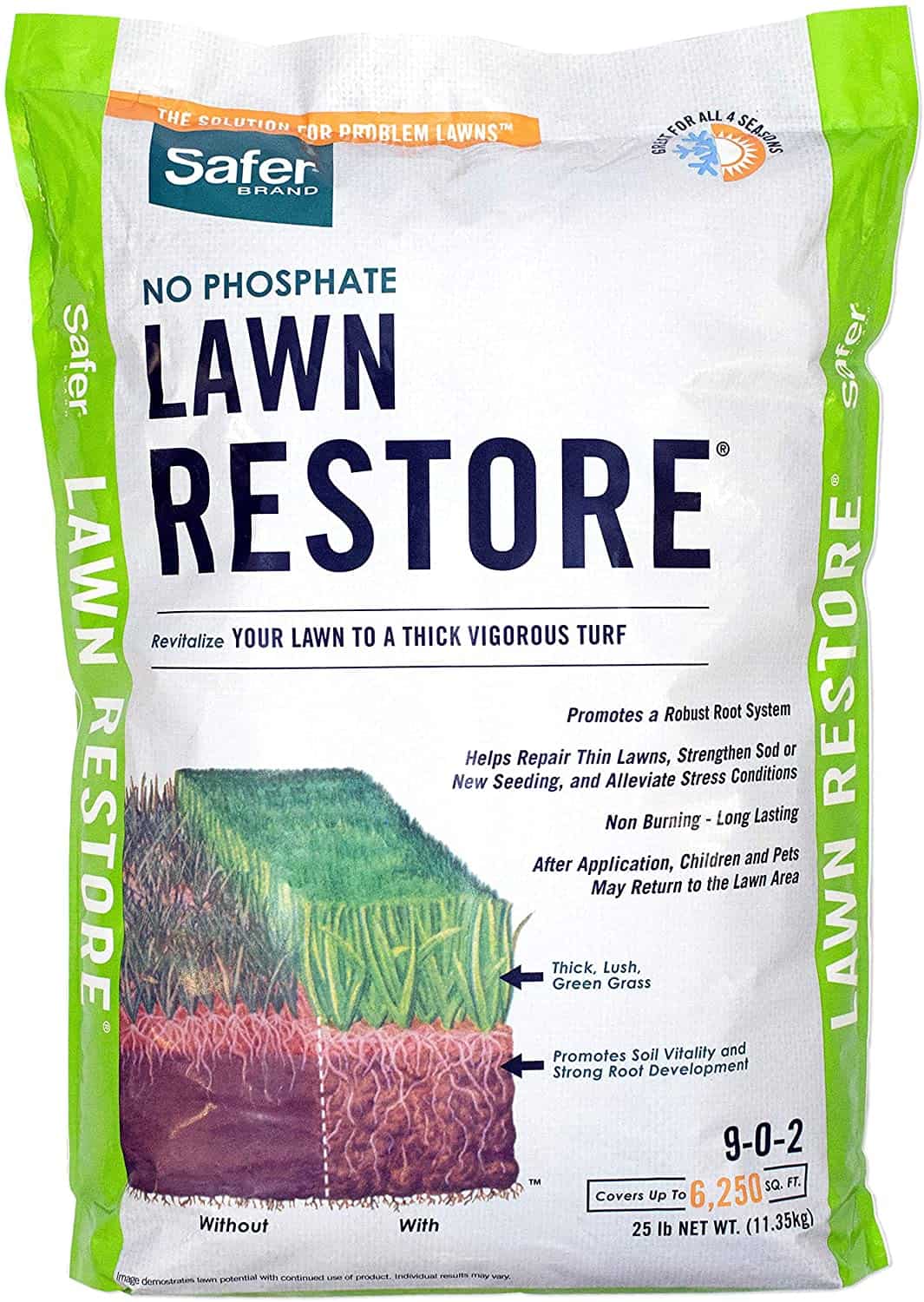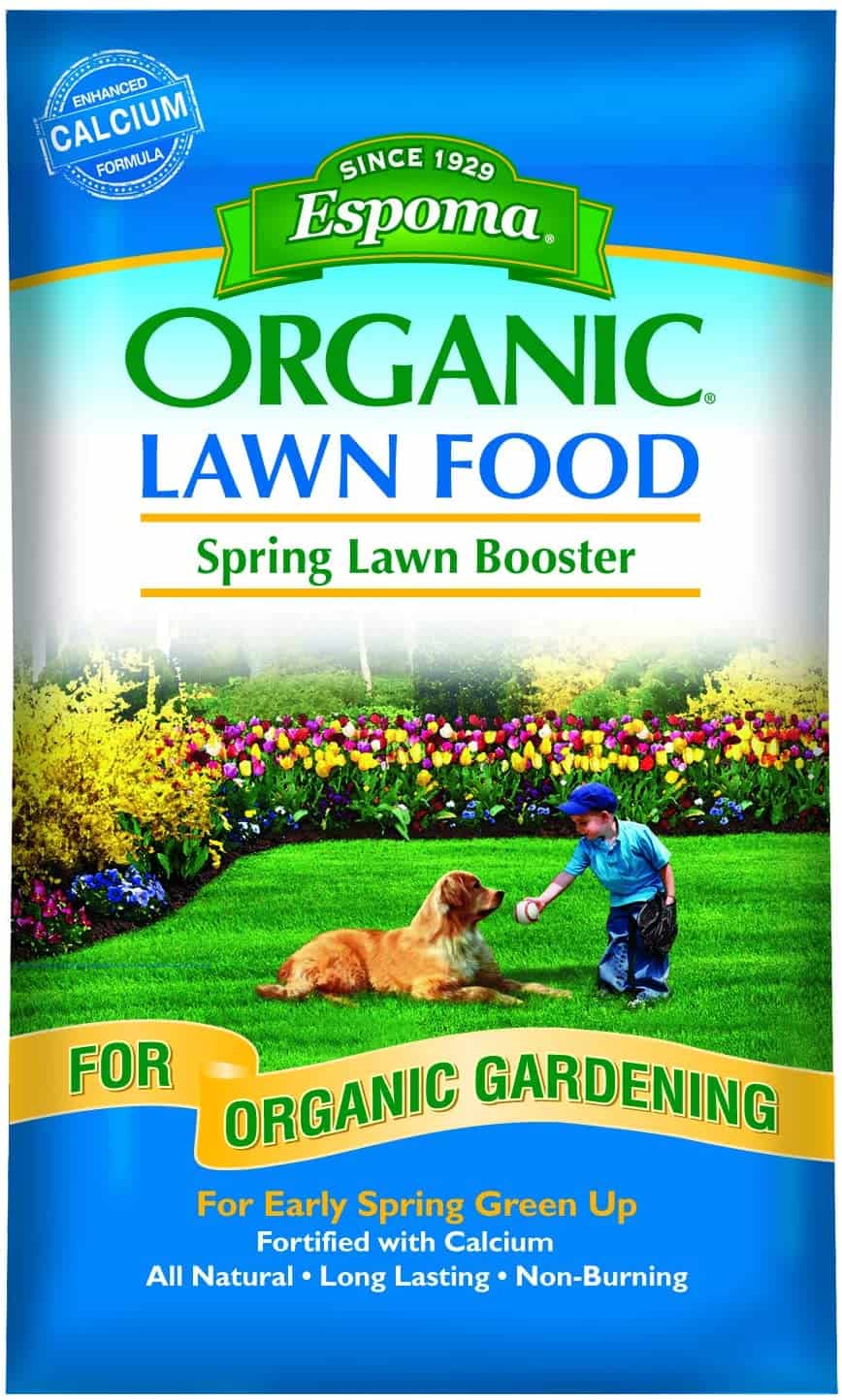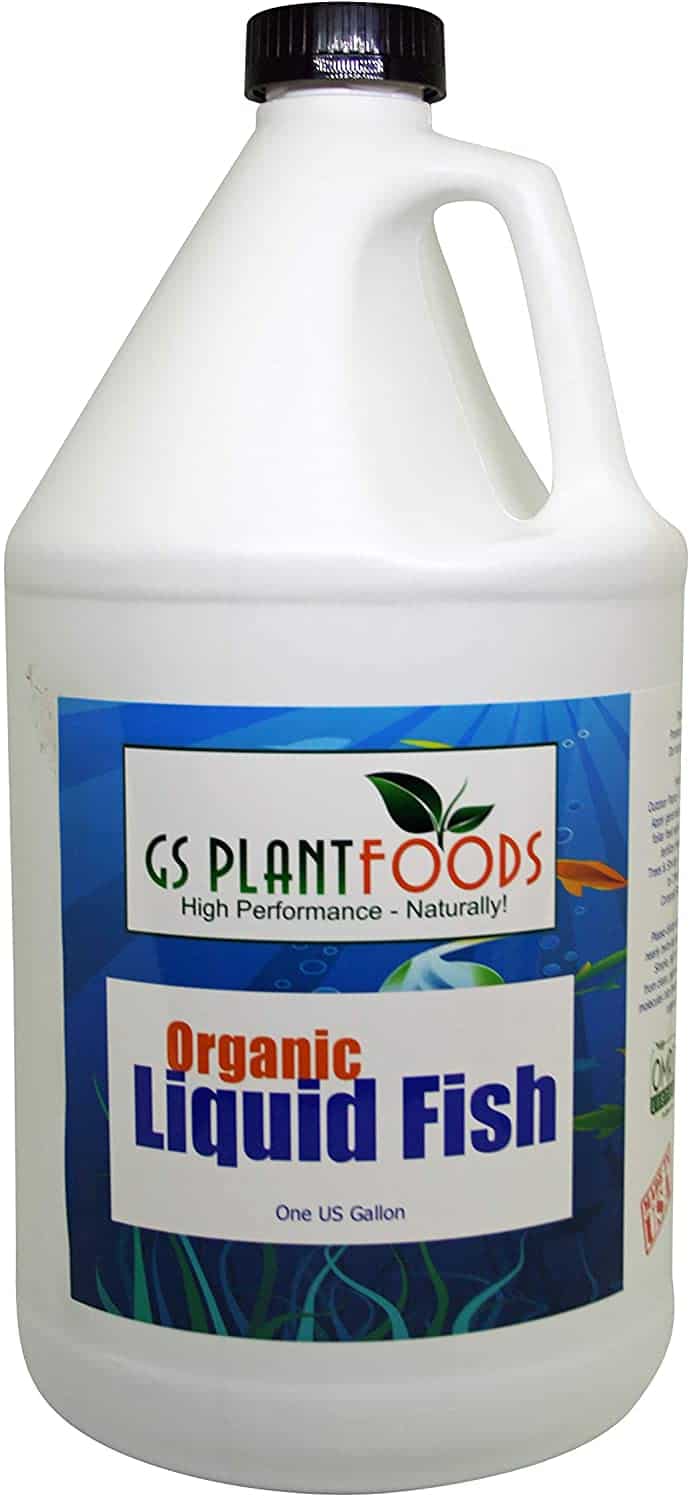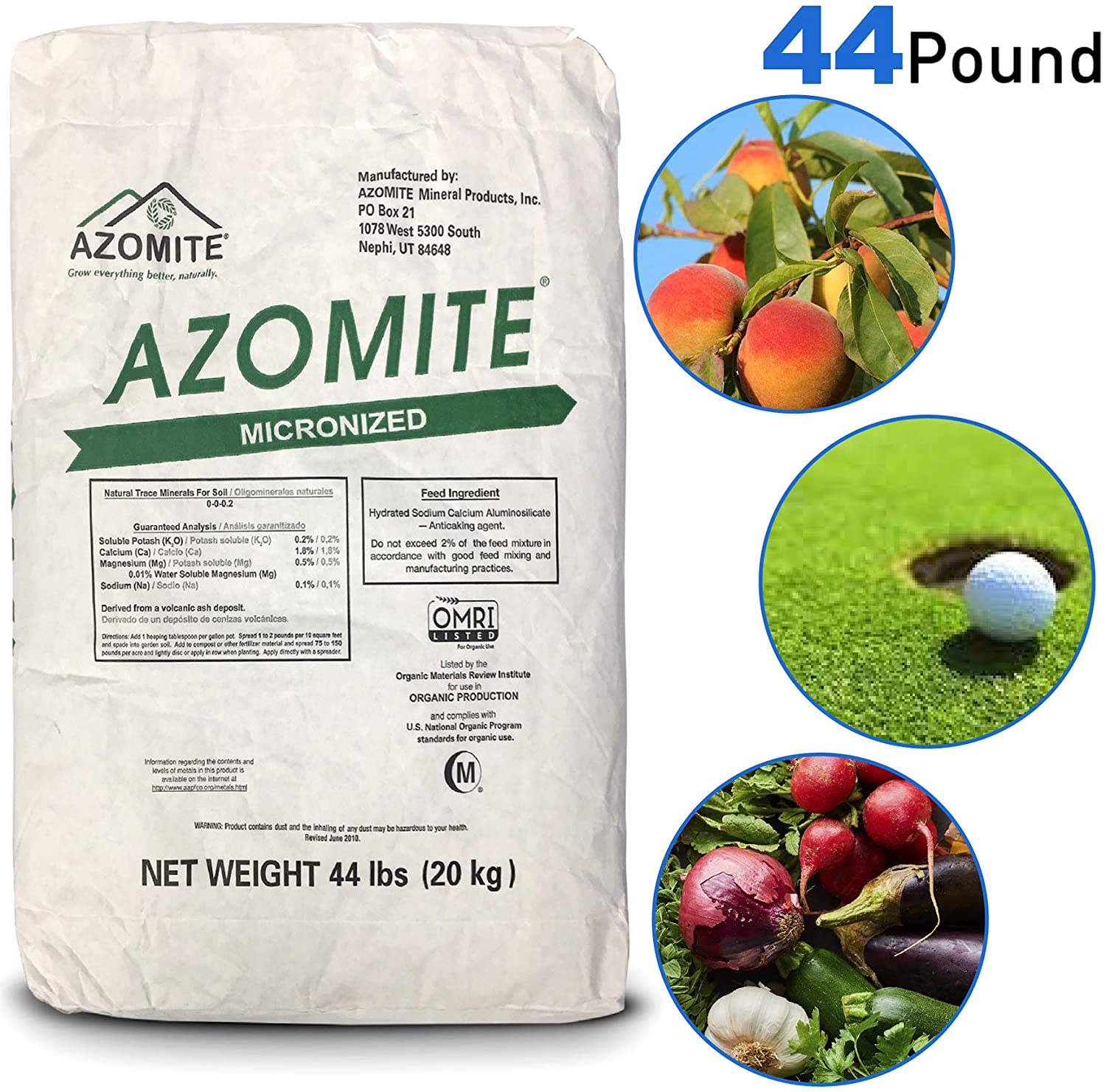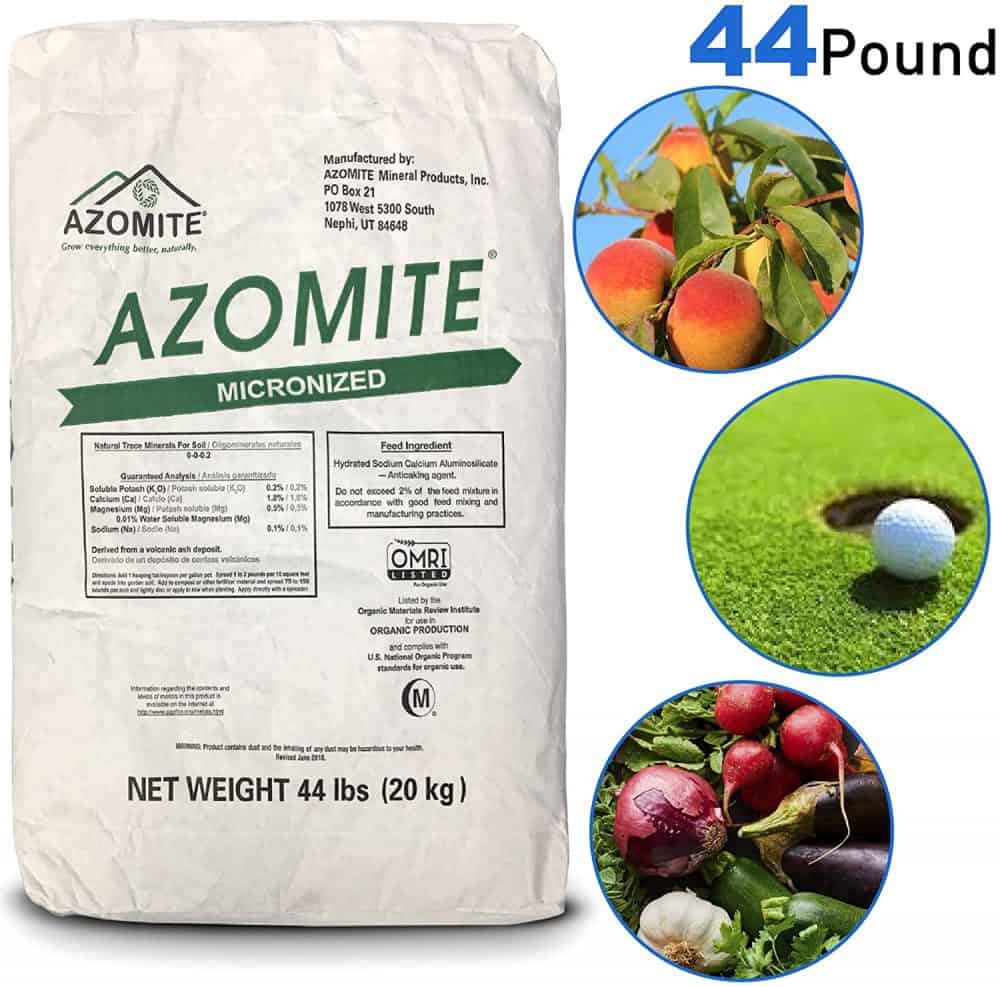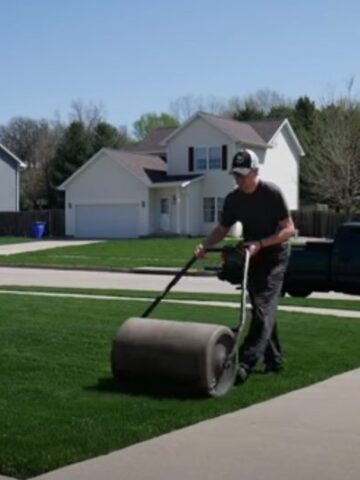Here's our picks of the top organic lawn fertilizers that will restore your grass to its former glory, making your lawn healthy and resilient.
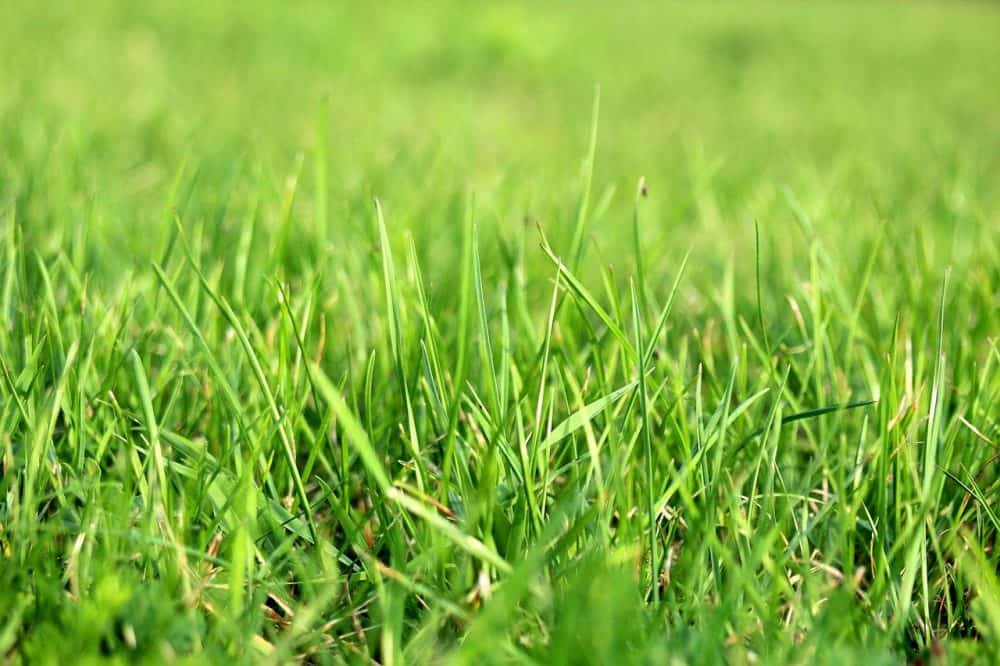
There was a time when your lawn looked beautiful, with lush grass glistening in the sun and butterflies fluttering around daintily in search of a place to rest on.
It formed an ideal backdrop for every snapshot of your children, and few visitors could resist observing how it simply had to be the greenest patch on this side of town.
That was then.
Today, the lawn is yellowing faster than the pictures in your family album, and no amount of watering seems to be helping.
To top it all, the store-bought fertilizer you used last month in a last-ditch effort to resurrect the grass only provided a quick nutrient deficient "sugar rush".
Maybe it's time you gave up...
Or maybe not.
Sad as your lawn may look, chances are that it's just missing out on some holistic encouragement. Here's our pick of top organic lawn fertilizers that will restore your grass to its former glory, making your healthy lawn the talk of the neighborhood again.
Safer Brand Land Restore Fertilizer
Enriched with nitrogen and soluble potash derived from a cocktail of feather meal, soybean meal, blood meal, alfalfa and molasses, this fertilizer immediately gets down to restoring the proper balance of natural elements in the soil.
Unlike synthetic fertilizers, natural lawn fertilizer encourages the development of beneficial bacteria and fungi that produce the nutrients your grass needs to flourish and become naturally pest-resistant.
The result?
Healthy grass with roots that are just as well-developed as the blades overground.
Pros
- Easy to spread on the grass
- Shows results fairly quickly in most cases
- Revitalizes the soil as well as the grass
- Encourages the growth of beneficial bacteria and fungi
- Safe for family and pets
Cons
- Recent change in the formula hasn't pleased everybody
- Some complain of a distinct odor
HIGHLIGHT: EASE OF USE
USER RATING: 4.⅕ (OF 206)
Espoma Organic Spring Lawn Booster
Spring is when everything around you looks its best, and it should be no different with your grass.
Spread Espoma's Organic Spring Lawn Booster evenly over your lawn by early April to watch it transform into something that might just earn a place in the pages of Fine Gardening.
While calcium - the same pH increasing ingredient found in lawn lime - protects the grass from disease, nitrogen and sulfur ensure that the soil is enriched enough to keep the lawn green for months to come.
Enriched with feather meal, poultry manure, and gypsum.
Pros
- Noticeably greener and thicker lawn in a matter of weeks
- Calcium strengthens the grass, naturally protecting it from disease and balancing the acidity of the nitrogen
- Organic ingredients pose no threat to children or pets
- No danger of burning the grass if applied in excess
Cons
- Users complained of a stink for 1-2 days after application
- No active ingredient for weed control
HIGHLIGHT: CALCIUM SHIELD
USER RATING: 4.⅖ (OF 36)
GS Plant Foods Organic Liquid Fish
This liquid fertilizer is a blast in more ways than one.
Brimming with beneficial fish proteins and nitrogen derived from aquatic sources, it provides the soil with the booster shot it needs to ensure the growth of plants and healthy grass alike.
While much of the nitrogen in standard fertilizers is lost to the surroundings soon after application, the oils and collagens in Organic Liquid Fish help bind it to the soil.
Pros
- Great for both soil and grass
- Oils and collagens in the fertilizer bind nitrogen to the soil
- Liquid nature makes it ideal for application
- Can be diluted for repeated use over a long period
Cons
- Lawn smells fishy for days after application
- Potent to a fault, container may 'explode' upon opening
HIGHLIGHT: MOST POTENT
USER RATING: 4.5/5 (OF 319)
Milorganite Organic Nitrogen Fertilizer
If you follow Mad Backyard, you know we love Milorganite.
Put your money on this if you have a well-established lawn that's having a hard time reaching its true potential. Trusted by homeowners and golf course professionals alike, Milorganite Organic Fertilizer can be used freely on your patch of green without fear of leaching or unhealthy grass growth.
This slow-release nitrogen fertilizer, composed primarily of heat-dried soil microbes, also contains 4 percent non-staining iron for making your grass look its best.
Pros
- Fast-acting fertilizer that promotes healthy growth
- Works on flower beds and vegetable patches as well
- High iron content gives sick-looking grass a lush green color
- Distinct odor said to discourage deer from destroying lawns
Cons
- Lack of root-growth support makes it ideal only for well-established grass
- Not suitable for lawns in regions prone to regular droughts
- Expensive in comparison to regular fertilizers
HIGHLIGHT: MULTIPURPOSE
USER RATING: 4.8/5 (OF 9)
Azomite Micronized Organic Fertilizer
Mined from an ancient mineral deposit in Utah, Azomite Micronized Organic Fertilizer contains a broad spectrum of over 70 minerals and trace elements that benefit grass and house plants alike.
This organic lawn food is an ultra-fine powder largely consisting of soluble potash, calcium, chlorine, and sodium, and works best for growing grass seeds from scratch.
Azomite remineralizes all types of soil for optimum growth, improving root systems of grass to ensure that your lawn turns a robust green and then remains so for a long time to come.
Pros
- Works best on low-quality soil desperately in need of enrichment
- Ultra-fine powder coats seeds, affecting maximum germination and initial growth
- Low application requirement ensures that a single purchase goes a long way
- Works on soil, holistically benefiting the grass
Cons
- Difficult to use with drop spreaders and in windy conditions
- Some lamented the lack of instructions on how to apply the fertilizer
HIGHLIGHT: OVERALL BEST
USER RATING: 4.7/5 (OUT OF 128)
Things to Consider Before Choosing Organic Lawn Fertilizer
Why go for organic lawn fertilizers when synthetic ones are cheaper and seemingly more effective?
The same reason you would bet on a runner who sets off on a long-distance race at a brisk jog rather than one who sprints ahead like a person possessed, only to fall out of breath halfway down the line.
While synthetic fertilizers that directly supply nutrients to the grass may bring about a near-miraculous transformation in your lawn in record time, how their organic counterparts achieve the same results by enriching the soil is bound to be more beneficial in the long run.
Synthetic fertilizers also kill beneficial microorganisms, leach into nearby bodies of water, create toxic concentrations of salts in the soil, and burn the grass if used in excess.
Are there any disadvantages to using organic fertilizers?
There can be a few disadvantages, although the benefits heavily outweigh them.
For one, organic fertilizers can get messy - the GS Plant Foods Organic Liquid Fish Fertilizer is a case in point - and they are usually harder to apply.
Being relatively dilute and slow to act, they can't be recommended for those hoping to win next week's best lawn competition, and their highly varying rates of nutrient release could prove to be a bother.
Organic fertilizers are also relatively expensive compared to their synthetic ounterparts, and unfortunately not as financially viable for large-commercial properties.
What are the common nutrients found in organic lawn fertilizers, and how do they help your grass grow?
The most vital nutrients that your grass gets from lawn fertilizers are nitrogen, phosphorus, and potassium. While nitrogen helps grass manufacture proteins needed to produce new tissues, phosphorus stimulates root growth, and potassium provides it with overall vigor.
Additional nutrients may include calcium (effective at neutralizing toxins), magnesium (helps process sunlight), and sulfur (provides a number of beneficial proteins).
The Verdict
There are many factors to consider when choosing an organic lawn fertilizer, but at the end of the day, you want to go with the one that grows your grass in the most holistic fashion possible.
It was this consideration that led us to conclude that Azomite Micronized Organic Fertilizer is the best on the list.
While the product may not offer individual nutrients like its competitors, it works towards rejuvenating the soil helping it tend to the needs of your grass like nature intended.
What's more, a 44-pound bag typically covers 12,000 to 15,000 square feet of lawn!

